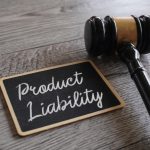Drafting contracts is an important step for any corporation; a good contract will contribute towards avoiding litigation action and ensures the client and its company is safe in a variety of potential situations. This month we speak with Barend Kellerman, who states anticipating the pitfalls when drafting contracts is much more satisfying than any other aspect of law. He speaks with Lawyer Monthly about commercial litigation, the development of South Africa, as well as touching on another area to which he is an expert in: sports law and how athletes should handle doping offences.
What do you think is the best way in which doping offences should be handled when involving influential athletes, especially during anticipated events such as the Olympics? What do you think should be the first course of action for clients and lawyers to take?
It depends on whether the athlete has been provisionally suspended from participation (which may be the case if the substance involved is a so-called specified substance such as a stimulant) or not and, furthermore, how long before the event the positive test becomes known.
Even if the athlete has not been provisionally suspended, his/her participation in the event may be in jeopardy because the national organisation may refuse to select the athlete whilst he/she is under investigation.
Where the athlete has been suspended from participation or where he/she faces omission from selection, and where it is possible to conclude the hearing prior to the event or selection for the event, it may be sensible to do so as soon as possible. It would be sensible to do so where there is any prospect that the athlete may prove that he ingested a specified substance inadvertently and the possible sanction may only be a warning or a very limited period of ineligibility, which may expire prior to the event. These instances are in the minority, as the sanctions for even inadvertent ingestion are harsh.
Where the athlete has not been provisionally suspended and where he/she is still eligible for selection despite the positive test (or the adverse analytical finding, as it is referred to in the anti-doping rules), the athlete should wait for the hearing to be concluded after the event. It is still likely that the period of ineligibility that is ultimately imposed may affect the results attained in the event.
The reality is that it is very unlikely that an athlete whose blood or urine sample returns an adverse analytical finding shortly before an event, will be able to compete in that event.
In all doping cases, athletes and their counsel should consider the following questions before deciding on a course of action:
- Should the adverse analytical finding be disputed or not? Is there any basis on which to dispute the sample collection procedure or the testing procedure? These must be tested against the prescribed protocols, before the athlete decides whether to dispute the test or not. In most instances, the doping authorities comply with these standards and there is very little chance of the athlete successfully challenging compliance therewith. (Even in the cases of non-compliance, it may be shown that such non-compliance did not affect the outcome of the test.)
- How should the consequences arising from the adverse analytical finding be dealt with – if they can be dealt with? I.e., how can the period of ineligibility be reduced?
- Is the substance involved a specified substance (which includes the less serious substances such as stimulants) or a non-specified substance? The anti-doping rules deal with these two classes differently in very fundamental respects.
- Can the presence of the substance be explained through its inadvertent ingestion, typically through a contaminated supplement, food or medication – without fault or significant fault on the part of the athlete? This is a possible ground for the reduction of the period of ineligibility.
- Are there any of these possibly contaminated sources available for testing for the substance? Having a source tested by a credible analytical facility for the presence of the banned substance, can make the task of explaining the ingestion much easier for the athlete. The rules and the interpretation thereof place a very heavy burden on the athlete in this regard. Convincing a disciplinary panel that an athlete was not negligent in ingesting a substance, or was not significantly negligent, can result in a significant reduction in the period of ineligibility, but then the source of the banned substance needs to be shown beyond mere speculation.
- Where the substance is a specified substance and the athlete cannot show the absence of fault or significant fault, but can show how the substance entered his body, can he still convince the panel that he did not ingest it intentionally? Then the period of ineligibility will be two years instead of the maximum prescribed ban of four years.
- Where the athlete cannot rely on the reduction of the period of ineligibility on the basis that he was not at fault or not significantly at fault, does he have any information at his disposal that he could convey to the doping authority that may assist it in identifying other athletes who dope or athletes or other professionals involved in coaching, training or management who distribute prohibited substances? Making this information available to the doping authorities may result in a reduction of the athlete's period of ineligibility. The extent of the reduction will be determined by the seriousness of his contravention of the anti-doping rules and the value of the information provided by him to the doping authority.
When drafting contracts, what are your main priorities? How do you ensure you do what is best for your client, whilst still adhering to the law?
When drafting a contract for a client, you usually represent one of the parties to the agreement. You need to ensure that, if a dispute should arise and your client should ever need to enforce his rights in court or through arbitration, he would be able to do so by relying solely on the wording of the contract. There should be as little room as possible for a factual dispute.
The contract should unequivocally, with as little reference as possible to factual matrix wherein the agreement came into being, record the parties' rights and responsibilities.
To do so, one needs to form a proper understanding of your client's business, of the industry that he operates in, of his aims with concluding the agreement and of the possible pitfalls in executing the transaction.
You also need to be able to advise your client on the legislative framework within which the transaction will take place and of the possible unforeseen and necessary consequences arising therefrom, such as tax liabilities, the need for certification or accreditation and, in a South African context, the need to comply with broad-based black economic empowerment legislation.
Because the contract will potentially be enforced in court and because common law or statutory illegality may result in the unenforceability of the contract, I would venture to say that it would always be in the client's best interests to remain well within the bounds of legality.
How has commercial law changed over the years in South Africa?
Our commercial environment has become much more regulated (some say completely over-regulated, to the detriment of economic growth) over the past 20 years. Legislation such as the Consumer Protection Act, the National Credit Act, the new Companies Act, broad-based black economic empowerment legislation and other social justice legislation have changed the commercial legal landscape significantly.
There has been a multitude of changes that drafters of contracts have had to keep up with. Our case law is still developing on the legislation in many respects and there remains some uncertainty, which will result in litigation.
Apart from the influence that the legislation has had on the substance of agreements, it has also resulted in a move away from technical legal jargon, in favour of simpler and more accessible language.
The party negotiating from a "weaker" position, such as the consumer of goods or services, or the recipient of credit, has found much aid from the legislature and from the courts who interpret the legislation. In most instances, it is impossible for the "stronger" contracting party (such as credit providers, providers of goods and services, landlords or employers) to contract out of the legislative provisions.
What further changes are you hoping to see that will benefit economic growth in the jurisdiction?
In the South African context, less regulation will stimulate an increase in small businesses. Small business is the major provider of employment and the driver of economic growth. Government has long been called upon to make it easier for small businesses to develop and grow. These calls have not been heeded.
It is simply not being made attractive enough for entrepreneurs to start new businesses and to employ people.
The other concern for business is that there is little supply of skilled labour, even against the backdrop of our massive unemployment. Government should focus on skills development and be less concerned with the redistribution of existing wealth, which contributes nothing to economic growth.
How have political tensions affected business and commercial ventures in South Africa? What can be done to ensure this does not cause any detriment?
The internal power struggle in the governing party and its contempt for market sentiment have greatly undermined investor confidence. The degree to which the actions of some members of the ruling party have damaged the economy, have led some to believe that its policy of radical economic transformation may entail the destruction of the economy in order to establish structural changes thereto, similar to what was attempted in Venezuela. Whilst the government is doing its utmost to achieve this, South Arica's financial sector and business structures remain sound and business grinds on in the short term. In the long-run, the only hope for growth in the country's economy remains a peaceful change in leadership in the ruling party, or a change in the party that rules, through democratic means. Civil society must remain vocal about its concerns over the direction that government is taking and the degree to which corruption and sycophancy have become embedded in all levels of government and society.
If you had the power to, what changes to constitutional law would you make in order to make your role easier?
I would like to see amendments that facilitate a movement away from a party-representational system to one where individuals are elected and held accountable by the electorate. It would also be in the interest of our democracy to allow for secret ballots in parliament as opposed to the current system wherein representatives are simply required to toe the party line, on all issues. This will allow them to vote in accordance with their conscience and their constituency's interests, rather than self-interests.
As Thought Leader, can you share the leadership skills you gained throughout your years when acting in the High Court?
Litigation is a quagmire of moral and ethical dilemmas. One requires a strong moral compass to navigate this landscape. Principles should never yield to tactical gains or commercial benefits, whether for yourself or your client. You require strong and good judgment under pressure.
Within these strict moral and ethical boundaries, however, an attorney should pursue justice for his client with vigour and without regard for his own interests. An attorney should not allow the pursuit of his/her client's cause to become jaded by the many procedural obstacles and practical challenges that line the road. Ultimately, the adage remains true: the wheels of justice turn slowly, but grind finely.
You specialise in many areas of law, which is your favourite specialism and why?
The drafting of agreements provides me with the most satisfaction. I prefer anticipating the pitfalls rather than helping people out of them.
Mini Questionnaire – ‘Food for Thought’:
What do you feel you couldn’t live without?
Professionally, I am unable to do without a good personal assistant and a competent bookkeeper. Being able to delegate filing, accounting and other administrative matters allow me to focus my efforts on the substance of my work, confident in the knowledge that the rest of the work is being taken care of.
It is impossible to maintain the service-level standards that you set for yourself without excellent support staff. My biggest asset is the people that I surround myself with, insuring excellence throughout the firm, instead of pockets of excellence.
What has been your biggest achievement in the past 12 months?
Managing to find a balance between my family life and clocking up hours at the office.
Do you have a mantra or motto you live by when it comes to helping your clients?
Under-promising and over-delivering.








